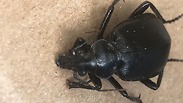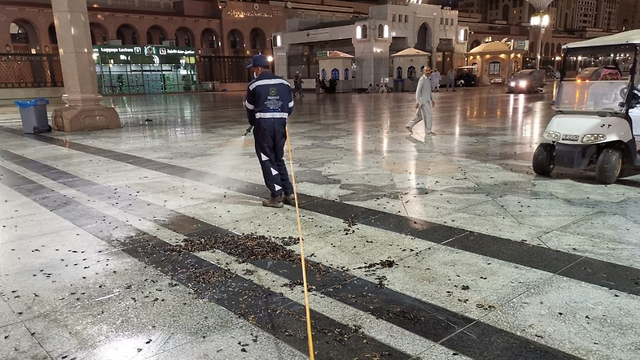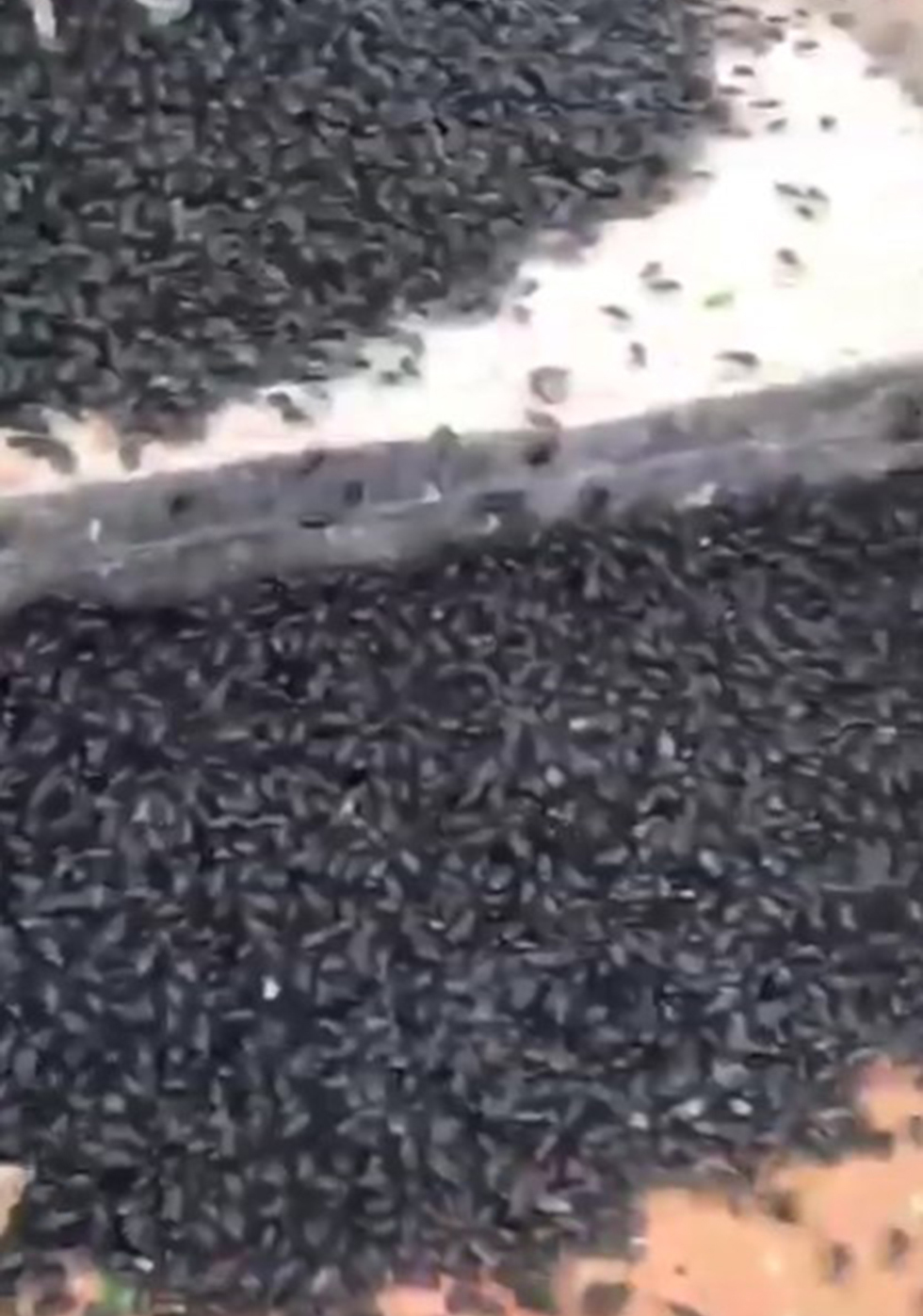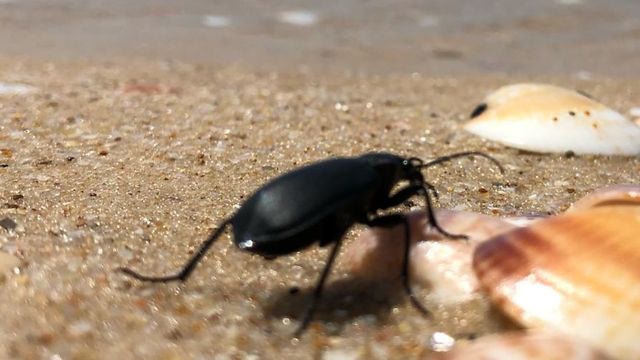Calosoma olivieri, a black beetle, about one inch in length is causing concern around the Mideast spreading from Saudi Arabia through Iraq to Egypt, Jordan and now Israel, all within under a month.
Arab media outlets began reporting the invasion of the beetle just over two weeks ago when they were spotted, among other places, in the holy cities of Mecca and Medina,
Saudi authorities in Medina, watched with concern as the beetles moved in on the roof of the The Prophet's mosque, the second holiest site in Islam. The mosque's domes were shut to keep the invaders out while the lights, which the beetles are drawn to, were dimmed. Mosque walls were sealed with silicone in an effort to block their path and prevent nesting.
Scientists believe the beetle infestation is a result of an unusually rainy spring season this year, causing humid conditions and increasing seasonal vegetation.
These were also credited with an unusual number of butterflies observed all over the region to the delight of onlookers.
The black beetle reproduces quickly. One beetle will lay between 150 and 400 eggs in two weeks. Its life span is approximately 22 to 26 days.
Israeli officials and researchers in the field stress there is no danger from these beetles: they are not carriers of disease and in fact can be useful in agriculture because they feed on cockroaches and other pests.
In Israel, the uninvited guests appeared in large numbers in Tel Aviv and other cities. they live in open areas and fly into cities in the evening hours where they forage for food and shelter.
Experts insist they will only be here for a short while before they move on.




















